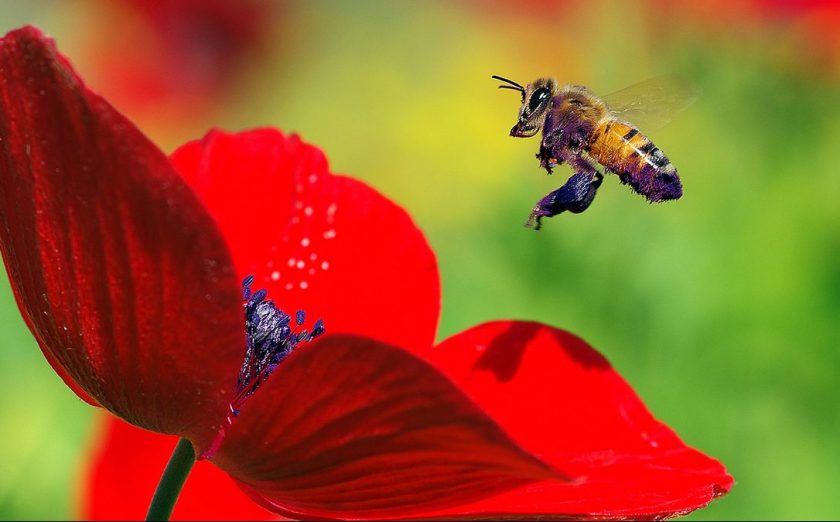
Honey bees are on the decline, and a common crop chemical may be partially to blame.
The widely used chemical, called Sylgard 309, is an agricultural spray used to boost the performance of pesticides. Researchers at Penn State and the U.S. Department of Agriculture say that the chemical makes honey bee larvae more vulnerable to a deadly affliction called the Black Queen Cell Virus. The study, published in Scientific Reports, suggests that this chemical is not only deadly to bees—its effects are intensified when used alongside normal pesticides.
“We found that bees exposed to the organosilicone adjuvant had higher levels of Black Queen Cell Virus,” said Julia Fine, a graduate student in entomology at Penn State. “Not only that, when they were exposed to the virus and the organosilicone adjuvant simultaneously, the effect on their mortality was synergistic rather than additive, meaning that the mortality was higher from the simultaneous application of adjuvant and virus than from exposure to either the organosilicone adjuvant or the viral pathogen alone, even if those two mortalities were added together,” said Fine. “This suggests that the adjuvant is enhancing the damaging effects of the virus.”
Fine pointed out that the U.S. Environmental Protection Agency considers organosilicone adjuvants like Sylgard 309 as “biologically inert,” meaning that they don’t affect living things—a claim refuted by the Penn State–USDA study. Because of this classification, Fine said, “there are no federally regulated restrictions on their use.”
To learn more about the study and its effects on honey bees, click here.
—RealClearLife Staff
This article was featured in the InsideHook newsletter. Sign up now.